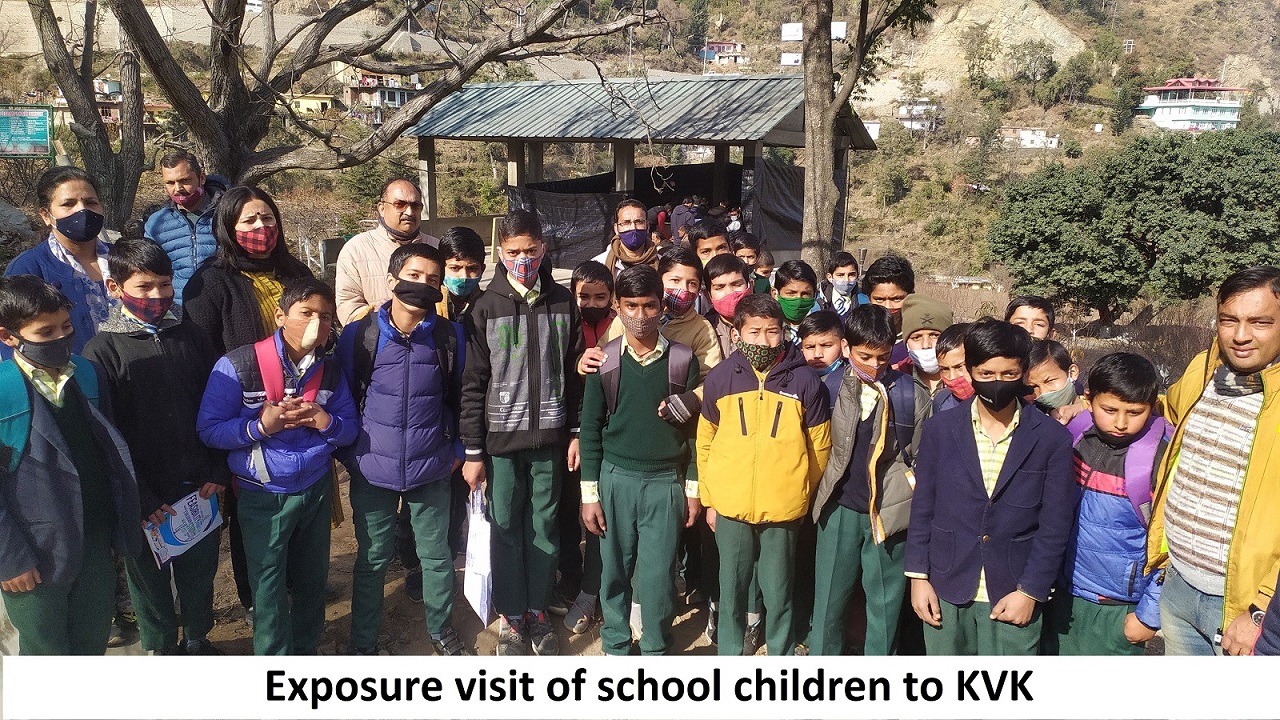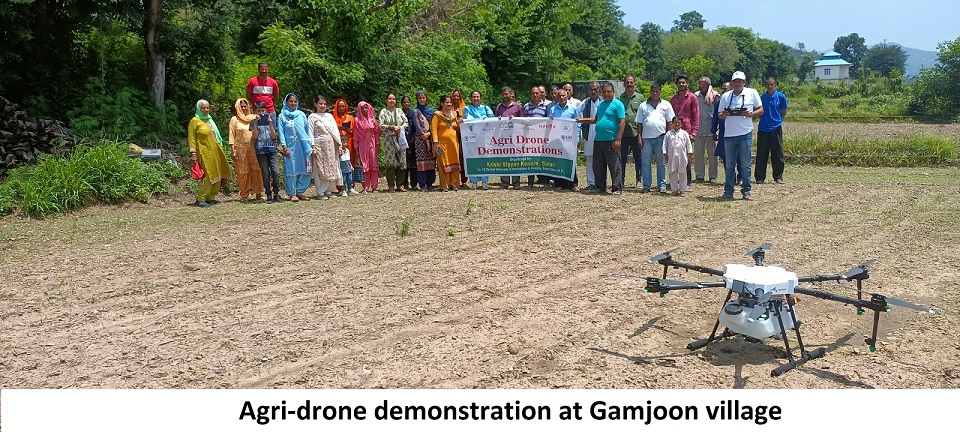
Horticultural Research &Training Station and KVK, Solan at Kandaghat was established in the year 1921 and is situated on the NH 22 between Solan and Shimla at an elevation of 1460 ma.m.s.l.This Station was established by the Maharaja of Patiala in 1921 as his kitchen garden and remained under the Patiala State upto 1950. From 1950-56, it was under the PEPSU Government. Thereafter, from 1956-62, it was under Punjab Agriculture Department; 1962-70 under Punjab Agricultural University, Ludhiana; 1970-78 under Himachal Pradesh University, Shimla and from 1978-85 this station was under Himachal Pradesh Krishi Vishvavidyalaya, Palampur.
On the advice of Prof. R.W. Hodgson, University of California, the stone fruit cultivation was started at this station in 1936. Since then, this station has played a significant role in selection and recommendation of stone fruit varieties for mid-hill conditions of the state. From 1985 onwards, it became Fruit Research Station later renamed as Horticultural Research Station and became a part of Dr. Y. S. Parmar University of Horticulture and Forestry, Nauni, Solan.During the year 1990, this station also started research work on seed production of vegetable and flower crops.
From 2000, this station was assigned the additional responsibility of Re-mandated Krishi Vigyan Kendra until February, 2004 after which it was elevated to a full-fledged Krishi Vigyan Kendra for Solan district of Himachal Pradesh with additional responsibility of Horticultural Research Station till 2014. This station was then renamed as Horticultural Research & Training Station andKrishi Vigyan Kendra in 2014.
This station is conducting Rural Agriculture Work Experience (RAWE)/ Rural Horticulture Work Experience (RHWE) programme for the B.Sc Final year students of College of Horticulture and Forestry, Nauni Solan, College of Horticulture and Forestry, Thunag, Mandi and College of Horticulture and Forestry, Neri, Hamirpur for the duration of 10 to 15 days.


Assessment of location-specific technology modules in agriculture and allied enterprises through technology assessment, refinement and demonstrations. This station is supporting the rural farmers by transferring new technologies to them and hence promoting scientific and technological research and the associated skills and procedures to wider society and the marketplace. The main function is to undertake vocational trainings and on farm testing of the technologies.
